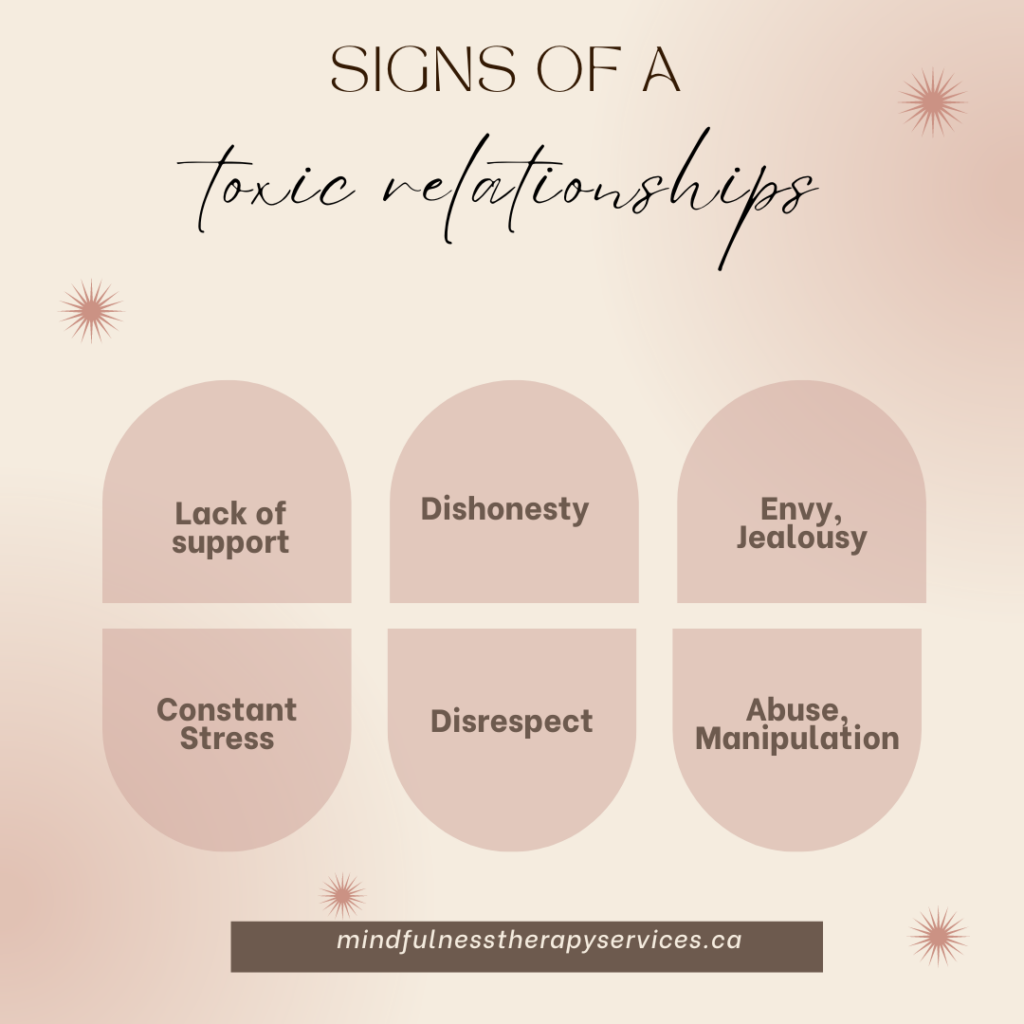The quality of our relationships determines the quality of our lives. Esther Perel
Esther Perel‘s quote is undoubtedly a wise observation and an actual fact we can all relate to, given that relationships are an integral part of our existence, offering support and connections.
However, not all relationships are born the same! Some are healthy and functional, and others are unhealthy and dysfunctional. Unhealthy relationships impact our mental health, physical well-being, and functioning in the world.
Healthy relationships give us energy, hope, a sense of self-worth, emotional bonding and security, among many other positive experiences. Unhealthy relationships can feel draining and effortful and debilitate our self-confidence.
As a psychotherapist, it’s not unusual to hear clients talk about finding some of their relationships toxic, either at work, family, friendships or intimate relationships. The labels “toxic relationship” and “toxic person” have become more popular, especially in social media.
What is a Toxic Relationship?
Toxic relationships are not limited to romantic relationships. They can include co-workers or colleagues, work supervisors, friendships, family members, parents, and caregivers. They consist of any relationship we depend on for basic living needs, such as income, health, food, education, professional image, or relationships involving people with whom we have an emotional and psychological bond.
Adam Grants describes five characteristics of toxic relationships. I added some others I have encountered in my work as a psychotherapist and mental health professional:
Disrespect: lack of courtesy, consideration and dignity for the other person.
Ambivalent and cutthroat: Being cheered on by the same person who cuts you down amplifies any existing complicated feelings, rumination, and self-doubt. Competition, possessiveness, and jealousy can also create an unsafe and unsettling relationship dynamic.
Dishonesty: gaslighting, cheating or lying can be as damaging as not being able to be honest and communicate feelings freely to another person because of fear of retaliation.
Exclusionary: rejection, belittling, putting down or cruel judgments based on sexual preferences, identity, age, body image, abilities, etc., can be harmful and leave lasting psychological injuries.
Abuse: emotional and psychological bullying, verbal or physical hostility, financial threats or control, harassment or disrespect for personal boundaries, and blackmailing are some of the behaviours that create toxic environments.
Manipulation: Controlling tactics, intimidation, and distorting facts can create a sense of being cornered and trapped in a relationship.
Neglect: A lack of support, interest, curiosity and care in a relationship can make a person feel unworthy, unwanted, or unlikeable.
How do we know when we are in a toxic relationship:
Recognizing and identifying the signs of a toxic relationship is not easy, especially when the unhealthy dynamics become so familiar and internalized that we feel that’s the norm or are a continuation of the dysfunctional family patterns we grew up in. When toxic relationships are developed through the early years, youth, or perdure across our adult lifespan, we can present with signs of complex trauma.
Some people seek out psychotherapy when they recognize that they might be in a relationship with toxic people. Other times, friends alert us as they see us experiencing unnecessary distress and changes in our sense of self and confidence.

Here are some key indicators:
Feeling Drained: When interacting with those people, you usually feel overly stressed, depleted or exhausted.
Feeling like walking on eggshells: You often feel highly anxious before or during spending time with them, so you avoid contact or hide parts of yourself from them.
Isolation: The relationship takes so much time and space that it discourages you from meeting other people and socializing. The person controls whom you can befriend or see, or their activities distract you from engaging in different aspects of your life.
A constant state of Hyperalertness: Intermittent, ambivalent, or unpredictable actions, comments, or moods make you excessively focus on them to maintain safety.
Feeling alone: You feel unappreciated and dismissed, and your dreams and achievements are minimized or put down.
Self-doubt: You feel criticized and judged to the point of doubting your judgment. You feel a decline in your capacity to make independent choices and decisions.
Navigating a Toxic Relationship:
Considering separation can be challenging. Sometimes, the healthiest option is to create distance or completely separate from the toxic individuals. However, it can be difficult, especially in family or workplace situations.
Establishing boundaries is crucial to maintain a sense of self-agency and safety. It’s paramount to consider seeking support from friends, support groups, or trustworthy family members. Toxic relationships impact our mental health and wellbeing. Thus, it’s important to consider consulting with a mental health professional like a psychotherapist or counsellor.
When the other person is unaware of the impact of their actions on you, trying to defend your perspective or explain your feelings might not be helpful or create the desired change. It’s important not to personalize or feel responsible for fixing toxic dynamics.
In some cases, evaluating whether the relationship can be saved can be addressed through family therapy, individual counselling, or couple’s therapy.
If you’re facing any form of abuse or violence, seek help immediately. Contact local authorities or support organizations for assistance.


